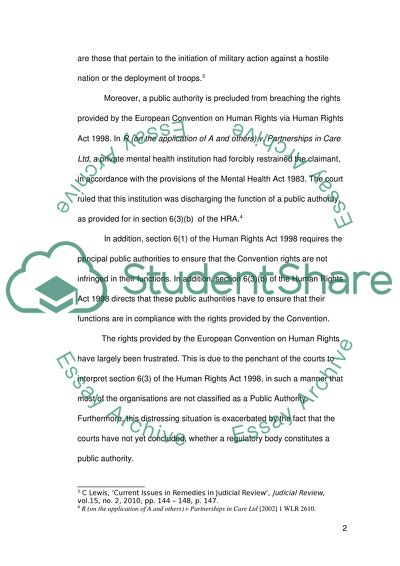Cite this document
(“The power given to judges by judicial review actions and the Human Essay”, n.d.)
Retrieved from https://studentshare.org/environmental-studies/1415029-the-power-given-to-judges-by-judicial-review
Retrieved from https://studentshare.org/environmental-studies/1415029-the-power-given-to-judges-by-judicial-review
(The Power Given to Judges by Judicial Review Actions and the Human Essay)
https://studentshare.org/environmental-studies/1415029-the-power-given-to-judges-by-judicial-review.
https://studentshare.org/environmental-studies/1415029-the-power-given-to-judges-by-judicial-review.
“The Power Given to Judges by Judicial Review Actions and the Human Essay”, n.d. https://studentshare.org/environmental-studies/1415029-the-power-given-to-judges-by-judicial-review.


